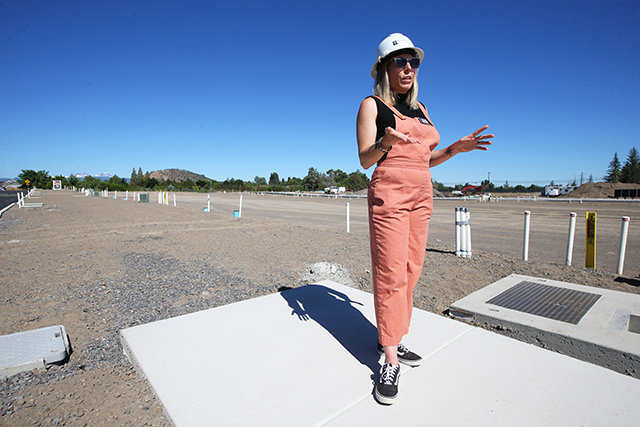Restored relations with U.S. has Cuban athletes optimistic
Published 12:00 am Tuesday, December 23, 2014
SANTA CLARA, Cuba — Huge posters of Fidel Castro of Cuba and Hugo Chávez of Venezuela seemed to face each other above the boxing rings at Amistad Arena, suggesting a friendly round of socialist sparring between eternal comrades.
A third presidential aura hovered over the Cuban national championships during the weekend — that of President Barack Obama, who has ordered the restoration of diplomatic relations between Cuba and the United States.
Trending
The prospect of better ties between the countries, not to mention future Olympic medals, created an optimistic mood as Cuba’s top fighters were escorted to the ring by women in short skirts and high heels and the booming stadium anthem “We Will Rock You.”
“Not only sports, but almost everything in life is going to be better,” said Julio César la Cruz, 25, a two-time world light-heavyweight champion, whose sentiment was repeated often here among boxers and officials.
In sporting terms, much more is in play in Cuba than the possibility of its terrific baseball players gaining unrestricted access to the major leagues.
Cuba is seeking to maintain its pre-eminence as a regional athletic power despite decades of erosion caused by the U.S. trade embargo and the collapse of the Soviet Union and the Eastern bloc, formerly the island nation’s primary sporting benefactors.
The 15 medals won by Cuba at the 2012 London Olympics were its fewest at a Summer Games since 1976 (not counting 1984 and 1988, which it boycotted).
Its stadiums are decaying, and some equipment is sorely lacking, something officials attributed to an inability to buy on credit.
Trending
Seeking much-needed hard currency, and to dam a flood of defections by elite athletes over the years, Cuba has also embraced a concept that was once anathema to its revolutionary ideal: professional sports, barred by Castro in 1961.
Today, Cuba’s top Olympic-caliber fighters can earn $8,000 to $12,000 in a month, according to the president of the country’s boxing federation.
“If it was possible to go to the U.S. to train and compete and come back freely, I think 100 percent of the Cuban team would come back,” said 21-year-old Robeisy Ramírez, the 2012 Olympic flyweight champion.
The United States also has its reasons to facilitate athletic relations with Cuba. For one thing, the U.S. Olympic Committee plans to bid for the 2024 Summer Games and will be seeking as many friends as possible to bolster a U.S. city’s chances.
Coaches at U.S. universities have also begun to consider the potential of reciprocal trips to train and compete in Cuba. They may also offer athletic scholarships to Cuban athletes in sports like track and field, wrestling and baseball.
“Anytime we get a young person in the country for educational purposes, it can’t hurt relations,” said Pat Henry, a prominent track and field coach at Texas A&M who has won 35 indoor and outdoor NCAA titles there and at Louisiana State. “That’s the way you effect change.”
In Olympic-related sports like boxing, wrestling, and track and field, and to a lesser extent soccer, elite athletes from the United States and Cuba already compete and travel regularly between the two countries. These exchanges seem certain to increase. And in sports in which Cuba has an advantage, U.S. officials will no doubt seek to import Cuban coaches and expertise.
About 1,500 Cuban coaches are working in more than 70 countries, in effect rented out for cold cash.
“I’ve tried to get one of their top coaches and athletes here as one of my assistants for years,” said Steve Fraser, a 1984 Olympic champion in Greco-Roman wrestling and the head coach of the national team for 18 years, who is now the chief fundraiser for USA Wrestling. “It has been impossible. I’m hoping that will loosen up.”
Efforts underway by the U.S. Commerce Department to lift export barriers on construction and sports equipment will be welcomed in Cuba. At some provincial stadiums in the Cuban baseball league, balls can become so scarce that games stop while children retrieve home runs and fouls and return them to the umpires, said Robert Huish, an assistant professor of international development studies at Dalhousie University in Halifax, Nova Scotia, who studies Cuban sports.
Rain can leave the wrestling mats soaked at the Greco-Roman training center, said Fraser, who travels here yearly. When the United States played a soccer match in Havana in 2008 while qualifying for the 2010 World Cup, a downpour left the field looking “like a cow pasture,” said Don Garber, the commissioner of Major League Soccer.
“Sport is the victim of limitations of the embargo,” said Tomás Herrera Martínez, the director of international relations for Cuba’s sports ministry and a bronze medalist in basketball at the 1972 Munich Olympics. “Sport is one of the main rights of the people, but sometimes there have not been enough resources.”
Baseball is Cuba’s most popular sport, but it has been dropped for now from the Olympics. Boxing, with its numerous weight classes, has long been the country’s most reliable producer of gold medals; Cuba has won 34.
Teófilo Stevenson, a heavyweight who won three golds from 1972 to 1980, once gave a short and loyal explanation about why he would not leave Cuba for the riches of professional boxing.
“What is a million dollars worth compared to the love of 8 million Cubans?” said Stevenson, who died in 2012.
International isolation and the disappearance of mandatory amateurism from the Olympics have given Cuba a more pragmatic approach to professionalism.
Last year, Cuban officials announced that athletes could turn professional and compete in foreign leagues. They keep 80 percent of their earnings, officials said. In exchange, the athletes agree to compete for Cuba in important domestic and international competitions.








